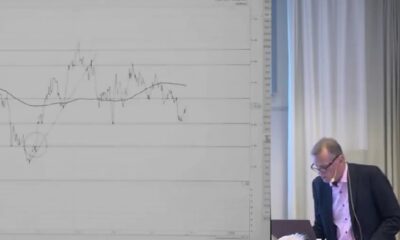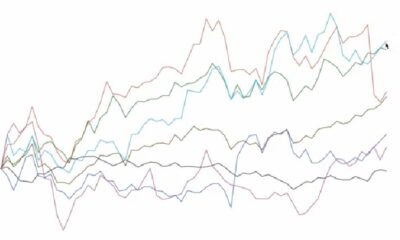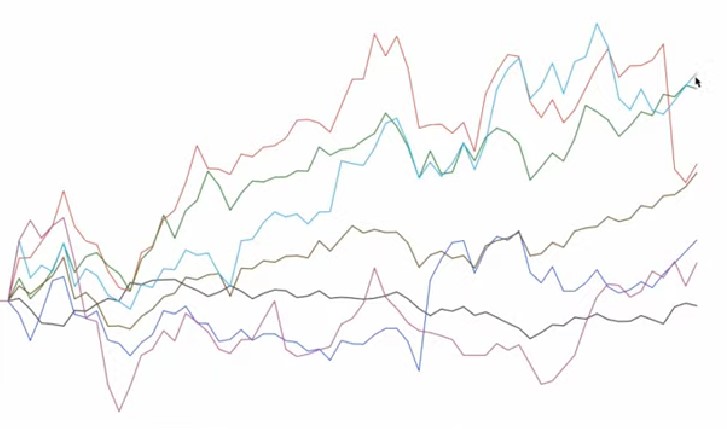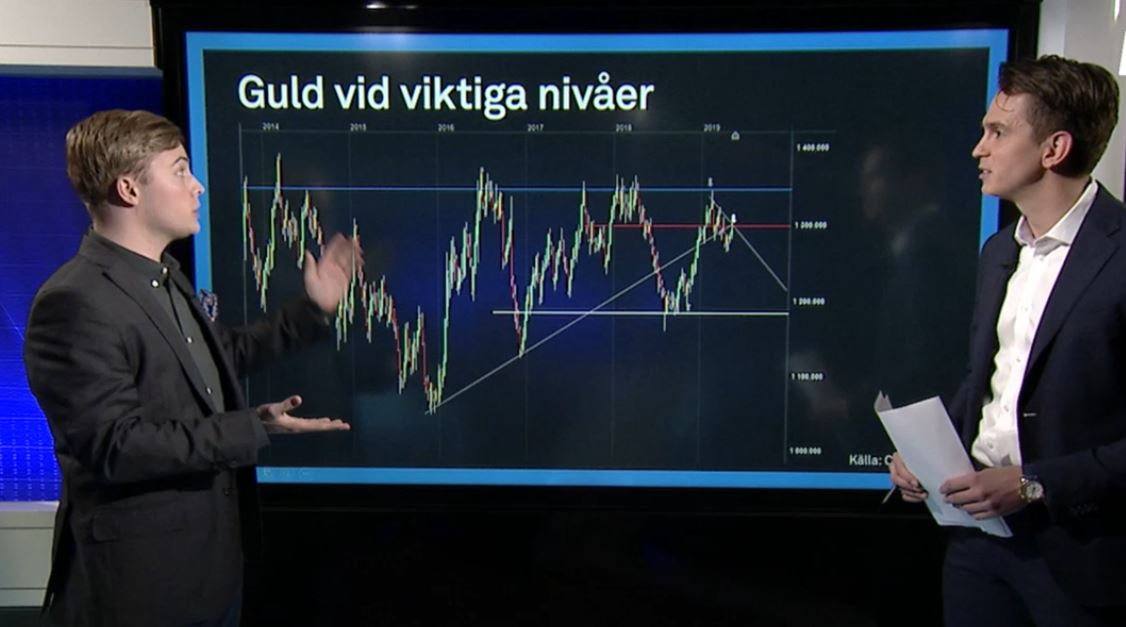Analys från DailyFX
USD/JPY Technical Analysis: Q2 Opening Range In Focus For Yen
Talking Points:
- USD/JPY Technical Strategy: Recent push off 38.2% resistance should guide USD/JPY outlook
- USD/JPY – Short Term Hurdles at 111.60 and 112.60
- Previous Post: USD/JPY Technical Analysis: To Know Yen, Follow Yields For Now
- SSI is currently +2.3 on USD/JPY as 69.7% of retail traders are currently long: To stay up with the Speculative Sentiment Index, please click here.
USD/JPY did not end the week holding onto gains that had been accrued on month- and quarter-end USD strength. The US Dollar had a volatile week as many Fed Speakers took to the airwaves to share their view of what is to come in term of the monetary policy, and across the board, we see a confidence in the Dot Plot projections that were shared earlier this month when the Fed raised rates.
What’s worth knowing is that Economic Surprises, measured by the Citi Economic Surprise Index, has been on a sharp rise since October. Naturally, Economic Surprises do not persist, which means to me that the Fed holding to their prior views in light of improving economic data may limit the upside for the USD unless other currencies like the EUR or JPY begin to weaken aggressively.
As Q2 gets underway, what happens to the outlook for the USD (access our Q2 Forecasts here) will become important and could take USD/JPY lower. We already have strong data, so it’s hard to credibly extrapolate a similar gain in economic data going forward, which could limit the upside in Treasury Yields, which could also limit the upside in USD/JPY going forward.
March 31, 2017, Strong/ Weak Rating (JPY Strong/ NZD Weak)
The technical picture aligns nicely (for the bears) with the fundamental picture. The chart pattern that we recently focused on was a bear flag pattern, which is identified from a consolidating pattern that finishes by rejoining the trend, which for 2017 has been lower.
The price target for a bear flag breakdown is a 100% extension of the first move lower from the lower high. Where traders should take note is that the bear flag target (108.400 is a mere 20 pips away from the 200-DMA (108.20). This makes for a nice price target on the downside if you are a trend follower and a nice stop losslevel if you are a trader looking to buy USD/JPY before a presumed move higher.
For now, the bias will remain lower with obvious counter-trend moves along the way that are expected to lack follow through. Traders can watch the Ichimoku cloud on the H4 chart for shorter-term traders or Daily Chart for longer-term traders to find invalidation of the bearish view.
A move above 114 would argue that the breakdown on the bear-flag did not have the follow through and momentum to carry through, but I would watch UST Yields move above resistance as well as an Intermarket confirmation on such a countertrend development.
Interested in Joining Our Analysts, Instructors, or Strategists For a Free Webinar? Register Here
D1 USD/JPY Chart: USD/JPY Trading Lower On Validated Bear Flag Breakdown
Chart Created by Tyler Yell, CMT
USD/JPY Sentiment: Japanese Yen may weaken into support vs. USD
USDJPY: Retail trader data shows 69.7% of traders are net-long with the ratio of traders long to short at 2.3 to 1. In fact, traders have remained net-long since Jan 09 when USDJPY traded near 117.477; price has moved 5.2% lower since then. The percentage of traders net-long is now its lowest since Mar 23 when USDJPY traded near 110.992. The number of traders net-long is 0.5% lower than yesterday and 2.5% lower from last week, while the number of traders net-short is 19.9% higher than yesterday and 20.1% higher from last week.
We typically take a contrarian view to crowd sentiment, and the fact traders are net-long suggests USDJPY prices may continue to fall. Yet traders are less net-long than yesterday and compared with last week. Recent changes in sentiment warn that the current USDJPY price trend may soon reverse higher despite the fact traders remain net-long.
—
Shorter-Term USD/JPY Technical Levels: Friday, March 31, 2017
For those interested in shorter-term levels of focus than the ones above, these levels signal important potential pivot levels over the next 48-hours.

Contact and discuss markets with Tyler on Twitter: @ForexYell
Analys från DailyFX
EURUSD Weekly Technical Analysis: New Month, More Weakness
What’s inside:
- EURUSD broke the ‘neckline’ of a bearish ‘head-and-shoulders’ pattern, April trend-line
- Resistance in vicinity of 11825/80 likely to keep a lid on further strength
- Targeting the low to mid-11600s with more selling
Confidence is essential to successful trading, see this new guide – ’Building Confidence in Trading’.
Coming into last week we pointed out the likelihood of finally seeing a resolution of the range EURUSD had been stuck in for the past few weeks, and one of the outcomes we made note of as a possibility was for the triggering of a ’head-and-shoulders’ pattern. Indeed, we saw a break of the ’neckline’ along with a drop below the April trend-line. This led to decent selling before a minor bounce took shape during the latter part of last week.
Looking ahead to next week the euro is set up for further losses as the path of least resistance has turned lower. Looking to a capper on any further strength there is resistance in the 11825-11880 area (old support becomes new resistance). As long as the euro stays below this area a downward bias will remain firmly intact.
Looking lower towards support eyes will be on the August low at 11662 and the 2016 high of 11616, of which the latter just happens to align almost precisely with the measured move target of the ‘head-and-shoulders’ pattern (determined by subtracting the height of the pattern from the neckline).
Bottom line: Shorts look set to have the upperhand as a fresh month gets underway as long as the euro remains capped by resistance. On weakness, we’ll be watching how the euro responds to a drop into support levels.
For a longer-term outlook on EURUSD, check out the just released Q4 Forecast.
EURUSD: Daily
—Written by Paul Robinson, Market Analyst
You can receive Paul’s analysis directly via email bysigning up here.
You can follow Paul on Twitter at@PaulRobinonFX.
Analys från DailyFX
Euro Bias Mixed Heading into October, Q4’17

Why and how do we use IG Client Sentiment in trading? See our guide and real-time data.
EURUSD: Retail trader data shows 37.3% of traders are net-long with the ratio of traders short to long at 1.68 to 1. In fact, traders have remained net-short since Apr 18 when EURUSD traded near 1.07831; price has moved 9.6% higher since then. The number of traders net-long is 15.4% lower than yesterday and 16.4% higher from last week, while the number of traders net-short is 0.4% higher than yesterday and 10.5% lower from last week.
We typically take a contrarian view to crowd sentiment, and the fact traders are net-short suggests EURUSD prices may continue to rise. Positioning is more net-short than yesterday but less net-short from last week. The combination of current sentiment and recent changes gives us a further mixed EURUSD trading bias.
— Written by Christopher Vecchio, CFA, Senior Currency Strategist
To contact Christopher Vecchio, e-mail cvecchio@dailyfx.com
Follow him on Twitter at @CVecchioFX
To be added to Christopher’s e-mail distribution list, please fill out this form
Analys från DailyFX
British Pound Reversal Potential Persists Heading into New Quarter

Why and how do we use IG Client Sentiment in trading? See our guide and real-time data.
GBPUSD: Retail trader data shows 38.2% of traders are net-long with the ratio of traders short to long at 1.62 to 1. In fact, traders have remained net-short since Sep 05 when GBPUSD traded near 1.29615; price has moved 3.4% higher since then. The number of traders net-long is 0.1% higher than yesterday and 13.4% higher from last week, while the number of traders net-short is 10.6% lower than yesterday and 18.3% lower from last week.
We typically take a contrarian view to crowd sentiment, and the fact traders are net-short suggests GBPUSD prices may continue to rise. Yet traders are less net-short than yesterday and compared with last week. Recent changes in sentiment warn that the current GBPUSD price trend may soon reverse lower despite the fact traders remain net-short.
— Written by Christopher Vecchio, CFA, Senior Currency Strategist
To contact Christopher Vecchio, e-mail cvecchio@dailyfx.com
Follow him on Twitter at @CVecchioFX
To be added to Christopher’s e-mail distribution list, please fill out this form
-
Analys från DailyFX10 år ago
EUR/USD Flirts with Monthly Close Under 30 Year Trendline
-
Marknadsnyheter5 år ago
BrainCool AB (publ): erhåller bidrag (grant) om 0,9 MSEK från Vinnova för bolagets projekt inom behandling av covid-19 patienter med hög feber
-

 Marknadsnyheter3 år ago
Marknadsnyheter3 år agoUpptäck de bästa verktygen för att analysera Bitcoin!
-
Analys från DailyFX12 år ago
Japanese Yen Breakout or Fakeout? ZAR/JPY May Provide the Answer
-

 Marknadsnyheter2 år ago
Marknadsnyheter2 år agoDärför föredrar svenska spelare att spela via mobiltelefonen
-
Analys från DailyFX12 år ago
Price & Time: Key Levels to Watch in the Aftermath of NFP
-
Analys från DailyFX8 år ago
Gold Prices Falter at Resistance: Is the Bullish Run Finished?
-

 Nyheter7 år ago
Nyheter7 år agoTeknisk analys med Martin Hallström och Nils Brobacke














